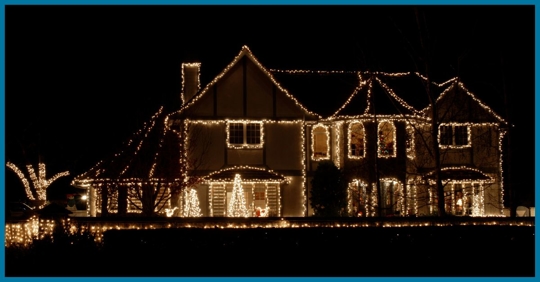Regional Climate Considerations
North Carolina is blessed with a diverse climate, ranging from the snow-kissed peaks of the Appalachian Mountains to the warm breezes of the Coastal Plain. However, this climatic variability presents unique challenges for maintaining a reliable electrical system across the state. In the mountains, cold temperatures may lead to extended periods of freezing, necessitating adjustments in electrical infrastructure to withstand such harsh environments. Meanwhile, coastal areas must prepare for both salt-laden winds and occasional frosty spells, which can impact electrical systems differently. Ensuring optimal performance during winter months requires tailored infrastructure upgrades that take into account local weather patterns and environmental impacts, including the potential for snow and ice buildup.
Common Cold Weather Electrical Issues
The winter months can wreak havoc on North Carolina's electrical systems, bringing forth a host of common problems. Power fluctuations, often caused by sudden cold snaps, can interrupt the steady flow of electricity, impacting everything from personal electronics to crucial home heating systems. Ice accumulation is another significant concern, especially when it forms on power lines, leading to potential damages and service disruptions. Additionally, while solar panels are a vital part of North Carolina's push towards renewable energy, their efficiency can be hampered by severe cold. The panels may become less effective in generating power, and heavy snowfall can obstruct their exposure to sunlight. Addressing these challenges is pivotal for maintaining a consistent power supply during the winter.
Conducting a Thorough Electrical System Audit
As leaves begin to litter your lawn and temperatures start to dip, it’s an ideal time for homeowners and property managers in North Carolina to carry out a comprehensive electrical system audit. A well-done inspection can often make the difference between a cozy winter and a frustrating one marred by electrical problems. Start by checking the integrity of your wiring, looking for frayed or exposed wires that could potentially lead to outages or fires. Pay meticulous attention to your circuit breaker and panel conditions, ensuring they’re free from rust and corrosion. Such a checklist can provide valuable insights into potential risk areas, giving you peace of mind before winter’s chill truly sets in.
Hiring Professional Electricians
Hiring certified professionals to perform an electrical audit can prove invaluable, especially in a state with North Carolina’s specific building codes and climate-related challenges. Professional electricians are trained to pinpoint issues that a layperson might miss, like overloaded circuits or improper installations. Tapping into their expertise means that you’re not only ensuring safety but also leveraging local knowledge to enhance the efficiency and reliability of your system. Their ability to diagnose and fix such problems effectively can help mitigate the risks of electrical failure during the harsher winter months, ensuring your property remains safe and fully operational.
Essential Upgrades for Winter Durability
The unrelenting nature of colder months demands more than just a cozy sweater and a warm cup of cocoa. To protect against winter's bite, consider essential upgrades to fortify your electrical system. Surge protectors are a first line of defense against unexpected power surges that could joltingly end your evening without warning. Backup generators ensure that when the grid goes down, your comforts and necessities stay powered up. And smart thermostats offer the advantage of automatically adjusting temperatures to optimize energy use and keep you cozy. These upgrades not only prevent disruptions but also ensure your systems remain robust and responsive even during North Carolina's severest weather conditions.
Regular Maintenance Protocols
Regular maintenance can significantly extend the lifespan of your electrical system and protect your investment against unforeseen breakdowns. Schedule periodic inspections to replace worn-out components and to test emergency systems rigorously. It's not just residential properties that need attention—commercial buildings in cities across North Carolina also demand meticulous maintenance to safeguard operations. Part of a good protocol involves testing backup generators and emergency lighting systems periodically to ensure they are fully operational when needed. Follow manufacturer guidelines for cleaning, repairing, and servicing various electrical components, and keep abreast of any changes in local regulations that could impact maintenance routines.
Insulation and Draft Prevention
When it comes to enhancing energy efficiency during the winter months, insulation and draft prevention are paramount. Cold drafts sneaking through electrical outlets and wires can lead to significant heat loss, driving up energy bills and reducing comfort. To tackle this, invest in proper insulation materials for your walls and attics and thorough inspections to identify drafty spots. Cavity wall insulation, double-glazed windows, and even simple draft stoppers can help retain precious heat in your home. These methods not only bolster your home's overall efficiency but also contribute to a more sustainable and eco-friendly lifestyle.
Smart Home Technology Integration
The integration of smart home technology offers promising avenues for boosting energy efficiency. Smart meters provide real-time insight into your energy usage, enabling clearer and strategic adjustments to your consumption. These systems work seamlessly with existing setups and can be adapted easily to fit North Carolina's diverse electrical landscape. Home automation allows occupants to remotely manage lighting, climate control, and appliances, reducing unnecessary energy expenditure. Installing such technology can be both a preventive measure against inadvertent energy overuse and a strategic move towards a futuristic, energy-conscious lifestyle.
Cold Weather Electrical Safety Tips
With a snow-covered tiptoe, winter can bring about potentially dangerous situations, particularly when it concerns electrical safety in the home. It's crucial to adopt specific precautions when using electrical equipment such as space heaters and electric blankets. Ensure that these devices are kept at safe distances from flammable materials like curtains or bedding, and never plug them into extension cords to prevent overheats. Furthermore, routinely checking the durability and safety of these items can help avert accidents and fires, paving the way for a safer, more secure winter.
Creating an Emergency Preparedness Plan
Winter is unpredictable; one day it’s a brisk chill, the next, a full-blown winter storm. Being prepared can often mean the difference between a manageable inconvenience and a full-scale crisis. Start by creating an emergency preparedness plan that includes clear steps for handling potential electrical outages. This might involve designating a communications strategy with family members or maintaining an emergency supply kit filled with non-perishable food, water, and medical supplies. Ensure that flashlights, manual can openers, and portable phone chargers are ready to use. Cultivating such readiness provides a safety net against the winter's unpredictability, offering peace of mind when the weather outside is frightful.
Keep Your Home Safe No Matter What the Weather Is Like with Zar Electric
At Zar Electric, we understand the unique challenges that North Carolina's weather presents. Ensuring your home is prepared for winter starts with hiring experienced professionals. Our team is committed to providing comprehensive electrical services, from system audits to smart home integrations, ensuring your home remains safe and energy-efficient. Contact us today to learn more about how we can help winter-proof your home and provide local electrical services you can rely on.
Zar Electric is available by phone at (919) 200-6551 or you can always contact us online.


